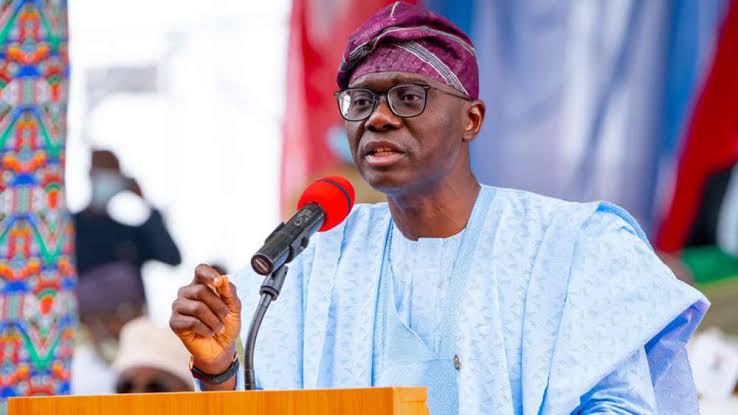
SANWO-OLU ADDRESSES GITEX ONE AFRICA DIGITAL SUMMIT IN MOROCCO
•I am committed to supporting growth of tech industry in Africa – Governor
•Says African continent is on accelerated path to becoming next Silicon Valley
Lagos State Governor, Mr. Babajide Sanwo-Olu on Wednesday said he is committed to the growth of the tech industry in Africa as an ardent believer in the vast and untapped potential that Africa holds in the realms of technology and digital innovation.
He said the acceleration of the African continent towards becoming the next Silicon Valley is a collective effort that requires the continued collaboration of governments, the private sector, academia, and the civil society.
Speaking at the GITEX One Africa Digital Summit in Marrakech, Morocco on Wednesday, Governor Sanwo-Olu said his administration’s focus on fostering an enabling environment for startups and tech companies to flourish is yielding unprecedented results, creating jobs, driving economic growth, and providing solutions to societal problems.
The Governor said the story of Lagos is a testament to the collaborative efforts of both the public and private sectors in fostering development, noting that “The remarkable rise of Yaba, a bustling metropolitan area in Lagos and home to the highest concentration of start-ups in Nigeria, owes its success to a well-coordinated public-private partnership.”
He said: “I stand before you today not just as the Governor of Lagos State, a sub-sovereign state within Nigeria with a population of over 20 million people, but as an ardent believer in the vast and untapped potential that Africa holds within the realms of technology and digital innovation.
“As the Governor of Lagos State, a city that is at the forefront of this transformation, I am committed to supporting the growth of the tech industry in Africa.
“Lagos, Nigeria’s bustling mega-city, is emerging as a thriving epicenter of tech entrepreneurship and innovation. Lagos is home to some of the most innovative and successful startups in Africa, including Andela, Paystack, Flutterwave, Kobo360, Kuda Bank and many others. These companies have not only transformed industries like fintech and e-commerce but have also inspired a new generation of entrepreneurs and investors across the continent.
“These success stories have been made possible, in part, by the fund raised from companies, unicorns, and venture capital firms that have flooded the Lagos tech ecosystem in recent years. More importantly, these investments have been attracted to the market size and the enabling environment that Lagos is becoming on the African continent.
“The acceleration of Africa towards becoming the next Silicon Valley is not a mere aspiration; it is a reality unfolding before our eyes. It is a collective effort that requires the continued collaboration of governments, the private sector, academia, and civil society. It is a journey of transformation that sees Africa not just as a consumer of technology but as a creator, an innovator, and a leader in the digital age,”
Speaking on bold steps taken by his administration in the area of technology, Governor Sanwo-Olu disclosed that “In deepening internet penetration, a key ingredient for start-up, we have deployed over 2,900km of fibre optic infrastructure that aims to connect public schools, government buildings, hospitals, and other points of interest.
“Along the same channels, we have deployed, in partnership with the private sector 3,000km of optical duct infrastructure. This will serve to de-risk infrastructure development in Lagos which will in turn increase connectivity.
“In the past one year, Lagos has attracted over one billion dollars in Data center investment. This will enable the local domicile of digital platforms as well as facilitate the proliferation of digital technology opportunities. The proliferation of these investments also presents 10 opportunities for talent development within this ecosystem.
“Our Smart City implementation has seen us deploy over 600 Smart Intelligent Video Surveillance Cameras as well as Intelligent Transportation Cameras for Traffic monitoring and management. Over the past year, through our initial ITS pilot deployment leveraging our Automatic number plate recognition cameras, monitoring of violation infractions has reduced traffic warden in-person enforcement by 30 percent.
“We have also begun a significant identity management programme through our Lagos State Residents Registration Agency that will seek to identify all our inhabitants. Current projections state that Lagos will have 30 million inhabitants by 2035. It is imperative to drive the identity management ecosystem for a smarter city. This will lend to more efficient resource allocation and planning for the state.”
Governor Sanwo-Olu added that “The Lagos Digital Identity Project has undergone a fundamental restructuring of its operational model. With a new digital identification card that is capable of enabling access to benefits, electronic ticketing and so on, it further drives the digital inclusion benchmark for Lagos. Currently, about five million residents have been captured. We are targeting another 10 million within the next year.
“Through our Lagos State Employment Trust fund, we have funded digital skills training interventions for more than 4,000 beneficiaries. Courses include digital marketing, coding, and other innovation courses. These digital skills training are needed capacity interventions that lend positively to the development of the ecosystem.
“Undeniably, this infrastructure has significantly contributed to the flourishing startup economy within Lagos State. However, the momentum is not confined to Lagos or Nigeria alone. From Nairobi’s Silicon Savannah to Cape Town’s Silicon Cape, and from Rwanda’s growing tech scene to Morocco’s digital development strides, the story is the same. Africa is rising, and technology is the wind beneath our wings.
“According to a report by McKinsey, Africa’s consumer spending is projected to reach $2.1 trillion by 2025, and its workforce is expected to be the largest in the world by 2035. The potential for growth and development in Africa is immense, and the technology industry is playing a crucial role in unlocking this potential.”
